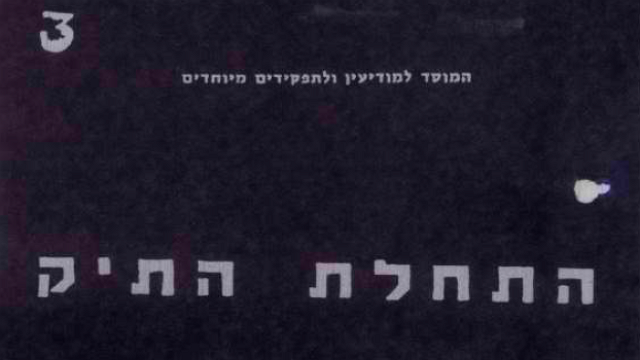
The Israel State Archive (ISA) has secretly and without public notice uploaded procedures for access to materials from the archives of the General Security Service, the Mossad, the Israel Atomic Energy Commission and the Israel Institute for Biological Research to an internal page on its website. While formally branches of the ISA, these organizations operate separate archives, and thus far provide no public access to their holdings.
The recently posted procedures largely rely on the provisions of the Access Regulations which are ancillary to the Archives law. These procedures outline how the public may apply to have documentation declassified and present criteria for reviewing applications to access archival materials. Additionally, they contain a provision that the declassification of materials be considered “to the extent possible”, at the agencies’ initiative (in other words, not upon requests from the public). The agencies’ procedures contain no provisions on opening catalogues of archival materials they hold, which are a basic tool for independent research of archival materials.
According to GSS and Mossad procedures, summaries of which were posted, applications to access materials from their archives are to be submitted using the “contact us” form on the main page of the ISA website. Accessing materials from the archives of the Israel Atomic Energy Commission (IAEC) requires contacting the Chief State Archivist using a form annexed to the IAEC procedure. Accessing materials from the archives of the Israel Institute for Biological Research (IIBR) requires contacting the IIBR’s management using a form annexed to the institute’s procedure.
In December 2018, Akevot Institute asked the Prime Minister’s Office to state how much archival material is stored in GSS and Mossad archives, how much of it was created fifty years ago or more and what proportion of the latter has been opened for public access so far. The Prime Minister’s Office has yet to reply to these questions, submitted under the Freedom of Information Act.
Historian Shai Hazkani petitioned the High Court of Justice last January, through the Association for Civil Rights in Israel, demanding declassification of GSS archival materials on the agency’s actions to suppress protests by recent immigrants from North Africa in the 1950s. The petition was filed after the GSS refused to declassify archival materials relating to this issue “for reasons of national security” and given its refusal to publish the procedure for public access to its archival materials – a summary of which has now been published.
The Prime Minister has recently signed a regulation extending the restricted access period on materials stored in the archives of the GSS, Mossad, IAEC, IIBR and unidentified units in the Ministry of Defense and the IDF from seventy to ninety years. This extension followed a previous one from 2010 which extended the restricted access period on these materials from fifty to seventy years. As a way to “compensate” the public for the previous extension, back in 2010, a provision was introduced into the regulations instructing these agencies to prepare procedures for public access to materials produced fifty or more years ago. As stated, these procedures were published only now, without proper public notice.
